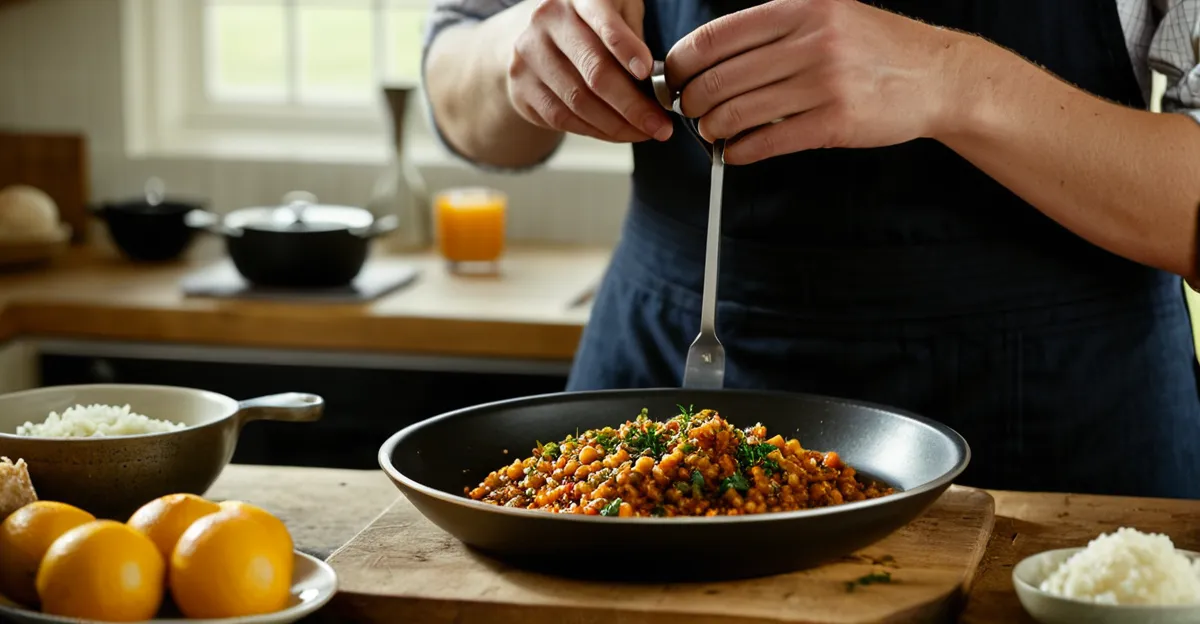Understanding Traditional British Cuisine in a Modern Context
Traditional British food is deeply rooted in history, characterized by its hearty, straightforward preparations and reliance on locally sourced ingredients. Classic dishes like roast beef with Yorkshire pudding and fish and chips reflect a culinary heritage shaped by centuries of agricultural and cultural influences. These meals carry significant historical weight, embodying the connection between Britain’s land, seasons, and people.
However, the modernization of cuisine is essential to align traditional British food with contemporary tastes and nutritional priorities. This does not mean discarding heritage; rather, it involves thoughtful adaptation. Incorporating healthier ingredients and refining cooking methods allows British culinary heritage to thrive without losing its identity.
Also to read : How Has UK Cooking Evolved Over the Last Century?
The transformation is also a response to global culinary trends and changing consumer expectations. The need for adaptation is evident as British food evolves beyond its stereotypical image, gaining new life through creative techniques and ingredient choices. This dynamic balance of respecting tradition while embracing innovation ensures traditional British cuisine remains relevant and valued today.
Healthier Ingredient Substitutions for Classic Dishes
Traditional British food often features rich, hearty ingredients like lard, suet, and refined grains. The modernization of cuisine pushes for healthier British recipes that still honor these flavors while improving nutritional value. For example, swapping butter or lard for olive or avocado oil reduces saturated fat without compromising texture. Similarly, replacing white flour with wholegrain or alternative flours enhances fiber content, contributing to better digestion and sustained energy.
Additional reading : How Does Traditional British Cooking Influence Modern UK Cuisine?
Incorporating more plant-based options is another key strategy. Modern British cuisine capitalizes on legumes, nuts, and vegetables as protein sources, reducing reliance on red meat and processed ingredients. This shift supports a balanced diet and aligns with environmental concerns.
Reducing processed elements is vital to maintaining authenticity while promoting wellness. Instead of processed meats or factory-made pastry, cooks use fresh, minimally processed ingredients to preserve the essence of traditional dishes in healthier forms.
Together, these ingredient swaps create a progressive, healthier version of British cuisine that respects culinary heritage yet adapts responsibly to contemporary dietary needs, striking a balance that satisfies both tradition and modern health standards.
Embracing Global Flavors and Techniques
The modernization of cuisine in traditional British food increasingly reflects the international influence on British food. Chefs and home cooks alike incorporate spices, herbs, and cooking methods from around the world, enriching British culinary heritage with diverse flavors. This blend creates a unique fusion cuisine that respects the roots of classic dishes while offering fresh, dynamic taste experiences.
For example, heat from Indian spices may enhance a traditional shepherd’s pie, or Japanese umami techniques can elevate a simple roast. This culinary innovation broadens the palate, making British food exciting for modern audiences without sacrificing authenticity.
However, blending traditions comes with challenges. Maintaining the balance between honoring British culinary identity and embracing foreign elements requires carefully adapting recipes to fit both flavor profiles and cultural expectations. Thoughtful integration ensures that global fusion complements rather than overwhelms traditional British dishes.
Overall, the intermingling of international flavors enhances the evolution of British cuisine, demonstrating how culinary innovation can respect heritage while inviting new ideas into the kitchen. This approach helps traditional British food remain vibrant and relevant in today’s global culinary landscape.








